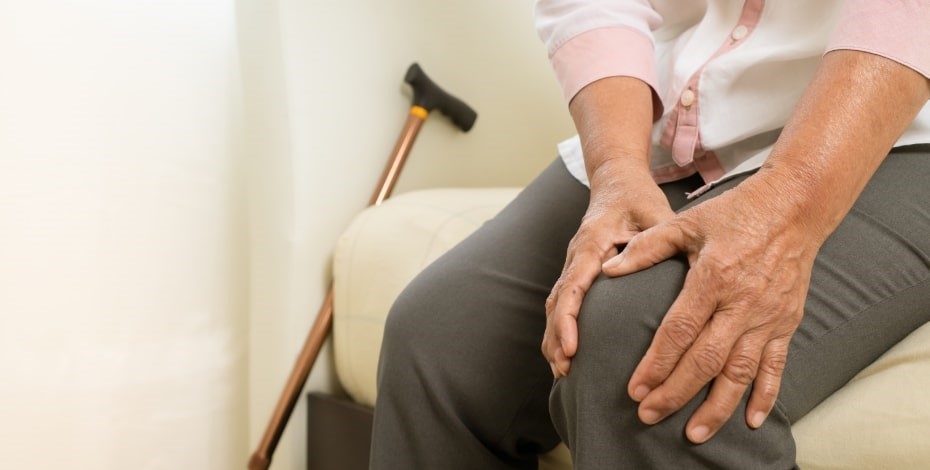
Muscle weakness and the brain

In our recent podcast series Researchers on the Record, clinician and researcher Wei-Ju Chang discusses the role of neuroplasticity in the pain and muscle weakness seen in knee osteoarthritis.
Physiotherapist and lecturer Dr Wei-Ju Chang APAM MACP straddles both clinical work and research, with a focus on chronic pain.
Wei-Ju is an APA Musculoskeletal Physiotherapist and his interest in the role of neuroplasticity in the development of chronic pain was initially triggered by the patients he sees in private practice and the limited relief he can provide them as a physiotherapist.
‘I had a desire to learn more about pain and why some people get better after an episode of back pain when other people struggle so much and for years to come.
‘They just don’t get any sort of relief,’ he says.
Wei-Ju was also intrigued by the complexity of the human brain and neuroplasticity, in part as a result of the pain science and chronic pain courses he took as a master’s student at the University of South Australia.
After completing his PhD at Western Sydney University, he joined Sydney research institute Neuroscience Research Australia, where he is investigating the role of the brain in the transition from acute to chronic musculoskeletal pain and the use of non-invasive brain stimulation techniques to treat chronic pain.
In 2019, Wei-Ju received a Physiotherapy Research Foundation Seeding Grant to investigate why muscle weakness, specifically in the quadriceps, persists in people with knee osteoarthritis, even after having a total knee replacement.
The project was derailed by the onset of the COVID-19 pandemic, but is now back on track.
Knee osteoarthritis affects more than 10 per cent of people aged over 60, causing pain, physical dysfunction and a reduced quality of life.
As a chronic pain condition, it is usually managed conservatively and knee replacement surgery is the end point for many people.
However, 20–30 per cent of people have ongoing pain after total knee replacement and muscle weakness may persist after surgery.
‘I had no answer and I didn’t know how to help them, so I thought I needed to understand more about people who have pain and why,’ he says.
‘We know quadriceps muscle weakness is prevalent in people with knee osteoarthritis and there’s previous research showing that it’s also linked to people’s pain.
‘What we don’t quite understand is why the muscle weakness persists long after surgery has been completed, with rehab afterwards, because the weakness is linked to persistent pain after surgery.’
Wei-Ju says that at this stage in his research, the focus is on gaining a better understanding of why the muscle weakness persists and how this relates to the neuroplasticity of the brain, particularly the primary motor cortex, which controls movement.
‘We know that this area has an important role in pain processing—when people have chronic pain, their brain structure changes, including the primary motor cortex,’ he says.
Wei-Ju is using a non-invasive brain stimulation technique known as transcranial magnetic stimulation to map the primary motor cortex and see the specific areas within that control the quadriceps muscles.
He is looking for changes in the brain related to the muscle weakness and how it changes—or doesn’t—after knee replacement.
He is also looking for a possible link between ongoing muscle weakness and persistent pain.
‘When we have a better understanding of how the muscle weakness persists, then we might be able to come up with some new treatment strategy to deal with this problem.
‘I hope that by improving a patient’s muscle strength, we can improve their function and maybe reduce their pain, if they are still experiencing it after the surgery,’ he says.
Click here to hear Wei-Ju Chang discuss his research in the Researchers on the Record podcast. Check out the other episodes while you are there.
© Copyright 2024 by Australian Physiotherapy Association. All rights reserved.





